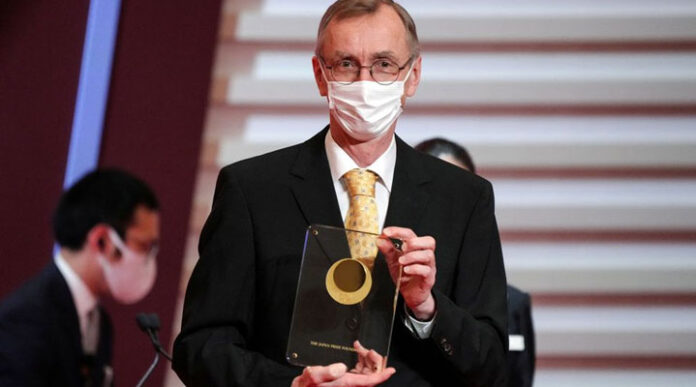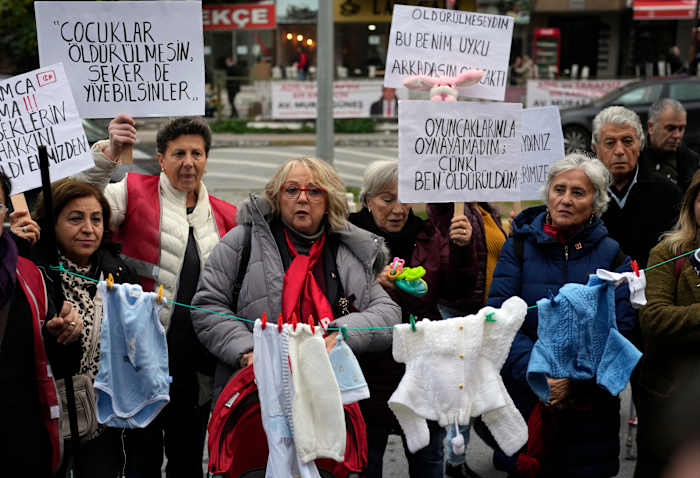When told of the prize, Paabo was “overwhelmed” and “very happy.”
His research is essential to comprehending human evolution.
Neaderthal genome sequencing reveals a connection to modern humans.
modern discoveries, like those pertaining to the immune system.
The first prize of this year is being given out in medicine.
Svante Paabo of Sweden was awarded the Physiology or Medicine Nobel Prize for 2022 on Monday in recognition of his contributions to our understanding of how contemporary humans descended from extinct ancestors.
For his “discoveries concerning the genomes of extinct hominins and human evolution,” Paabo, director of the Max Planck Institute for Evolutionary Anthropology in Leipzig, Germany, was awarded the prize, according to the Award committee.
Thomas Perlmann, secretary for the Nobel Committee for Physiology or Medicine, called Paabo with the news and described him as “overwhelmed” and “very happy.”
Paabo, 67, claimed he believed the call from Sweden had to do with his vacation home there.
In an audio clip posted on the Nobel website, Paabo said, “So I was just gulping down the last cup of tea to go and pick up my daughter at her nanny where she has had an overnight stay.”
Updates
Ancient DNA explorer wins the Nobel Prize in medicine.
Newly approved ALS medication Amylyx is priced at $158,000 per year.
According to a poll, 2/3 of adults in the US do not anticipate getting COVID boosters anytime soon.
In Indonesia, a Chinese mRNA COVID vaccine has received approval for the first time.
“And then I received a call from Sweden, which of course made me think it was related to our tiny vacation home there. I assumed that something had gone wrong with the lawn mower.”
When asked if he believed he would win, he responded, “No, I have won a few awards before, but I didn’t think that this would actually qualify for a Nobel Prize.”
Paabo, the son of a Nobel Prize-winning biochemist, is credited with revolutionizing the study of human origins by creating techniques that make it possible to analyze DNA sequences from ancient artifacts and fossils.
His most notable accomplishment is regarded as the methods created to enable the sequencing of an entire Neanderthal genome. He also contributed to the discovery of a previously unidentified human species known as the Denisovans from a 40,000-year-old finger bone fragment found in Siberia.
In light of the fact that Neanderthal DNA on bones has shriveled up over thousands of years into short fragments that must be assembled like a mammoth puzzle and are also heavily contaminated with microbial DNA, this research demonstrated that certain genes of Neanderthal origin are preserved in the genomes of people today, was once thought to be impossibly difficult.
The Nobel Committee stated in a statement on Monday that “this ancient flow of genes to modern humans has physiological relevance today, for example affecting how our immune system reacts to infections.”
Genetic variations
The award is given by the Nobel Assembly of Sweden’s Karolinska Institute and is one of the most prestigious in the scientific community. It is worth 10 million Swedish crowns ($900,357).
It is the first of the awards for this year.
Paabo, a Stockholm native, completed studies in biochemistry and medicine at Uppsala University before founding the scientific field of “paleogenomics,” which has shed light on the genetic variations that set living humans apart from extinct hominins.
The Committee stated that “His discoveries provide the framework for examining what makes us particularly human.”
German Minister for Education and Research Bettina Stark-Watzinger tweeted on Monday, “A scientist who helps us to better understand our own species – and is rightly recognized for it today.
The Nobel prizes for achievements in science, literature, and peace were established in the will of Swedish dynamite inventor and wealthy businessman Alfred Nobel; the economics prize was added later.
With the COVID-19 pandemic in the spotlight, many believe that medical research will eventually be rewarded for creating the vaccines that have helped the world resume some semblance of normalcy.
Even so, it often takes years for a piece of research to be recognized, with committees tasked with choosing the winners trying to make a confident judgment about its full worth in the midst of a field that is always crowded with contenders.
Perlmann responded that it was a good question but he was not going to answer why COVID-fighting advancements were not given the prize.
We only discuss those receiving the Nobel Prize; we do not discuss those who have not yet received it.
Paabo’s ancient forensics work did, however, shed light on why some individuals have a higher risk of developing severe COVID.
PANDEMIC
In a report published in 2020, Paabo and colleagues discovered that a gene variant that modern humans inherited from Neanderthals during their interbreeding approximately 60,000 years ago increased the likelihood that those who carry the variant would need artificial ventilation if infected by the COVID-causing virus.
“We can calculate the average number of additional deaths brought on by the Neanderthal contribution to the pandemic. More than a million more people have passed away as a result of this Neanderthal variant that they carry, which is a significant number “In a lecture in 2022, Paabo said.
According to David Pendlebury of UK-based Clarivate, Paabo’s 1989 paper with 4,077 citations was his most widely read on the Web of Science.
Only 2,000 out of the 55 million papers published since 1970 have received this much citation, according to him.
He continued that it was obvious that the Nobel Assembly determined that this ground-breaking genetics and evolution research fell within the scope of subjects that merited recognition.
But it’s not a prize for a discovery that has to do with clinical medicine, as many had hoped after last year’s Nobel Prize in physiology.
Numerous eminent scientists have won awards in the field in the past, most notably Alexander Fleming, who shared the 1945 prize for discovering penicillin, and Robert Koch, who won in 1905 for his research on tuberculosis.





